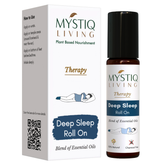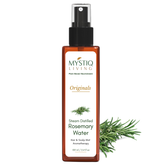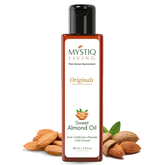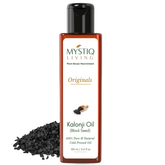Unveiling the Secret: Niacinamide for Skin - Benefits and Beyond
In the quest for healthy and radiant skin, we often seek out innovative skincare ingredients that can deliver transformative results. One such ingredient that has been making waves in the beauty industry is niacinamide. With its impressive range of benefits, niacinamide has become a staple in many skincare routines. In this article, we will explore the wonders of niacinamide for skin and how you can incorporate it into your daily regimen.
What is Niacinamide?
Niacinamide, also known as vitamin B3 or nicotinamide, is a water-soluble vitamin that plays a crucial role in maintaining overall skin health. It is a versatile compound that offers various benefits when applied topically. Niacinamide can be found in skincare products such as creams, lotions, and serums.
The Benefits of Niacinamide for Skin
1. Niacinamide and Skin Health - Niacinamide has been extensively studied for its positive effects on skin health. It helps to improve the skin's overall texture and tone, making it smoother and more even. Regular use of niacinamide can contribute to a healthier and more youthful-looking complexion.
2. Niacinamide as an Anti-Aging Ingredient - One of the key benefits of niacinamide is its anti-aging properties. It helps to reduce the appearance of fine lines, wrinkles, and sagging skin. Niacinamide promotes the production of collagen and elastin, proteins responsible for maintaining the skin's firmness and elasticity.
3. Niacinamide for Acne-Prone Skin - For those struggling with acne-prone skin, niacinamide can be a game-changer. It possesses anti-inflammatory properties that can help calm redness and irritation associated with acne products. Additionally, niacinamide regulates sebum production, preventing excessive oiliness and reducing the chances of clogged pores.

4. Niacinamide for Hyperpigmentation - Hyperpigmentation refers to the darkening or discoloration of certain areas of the skin, often caused by an overproduction of melanin. It can be triggered by various factors, including sun exposure, hormonal changes, and skin injuries. If you're dealing with hyperpigmentation, niacinamide can be an excellent addition to your skincare routine.
Niacinamide works by inhibiting the transfer of melanin to the skin cells, thereby reducing the appearance of dark spots and uneven skin tone. It helps to regulate the production of melanin, preventing its excessive accumulation in certain areas. By incorporating niacinamide into your skincare routine, you can effectively address hyperpigmentation and achieve a more balanced complexion.
How Does Niacinamide Work?
Niacinamide is a multitasking ingredient that works wonders for the skin. It exerts its beneficial effects through various mechanisms, making it a versatile and effective addition to your skincare routine. Let's explore how niacinamide works to enhance your skin health.
1. Regulation of Sebum Production: Niacinamide helps regulate the production of sebum, the skin's natural oil. By balancing sebum levels, niacinamide can prevent excessive oiliness without stripping the skin of its natural moisture. This regulation is particularly beneficial for individuals with oily or acne-prone skin, as it can reduce the occurrence of breakouts and promote a healthier complexion.
2. Strengthening the Skin Barrier: The skin barrier plays a crucial role in maintaining healthy, resilient skin. Niacinamide aids in strengthening the skin barrier by boosting ceramide production. Ceramides are essential lipids that form a protective barrier, preventing moisture loss and shielding the skin from environmental stressors. By reinforcing the skin barrier, niacinamide helps retain moisture, improve hydration levels, and protect against external aggressors.
3. Reduction of Inflammation: Inflammation is a common skin concern that can manifest as redness, sensitivity, and irritation. Niacinamide possesses potent anti-inflammatory properties, which can help calm and soothe inflamed skin. By reducing inflammation, niacinamide can alleviate redness, alleviate discomfort, and promote a more even complexion.
4. Inhibition of Melanin Production: Melanin is responsible for giving our skin its color. However, overproduction of melanin can lead to hyperpigmentation, dark spots, and uneven skin tone. Niacinamide inhibits the transfer of melanin to the skin cells, effectively reducing the appearance of hyperpigmentation. By regulating melanin production, niacinamide helps fade dark spots and promote a more even complexion.
By incorporating niacinamide into your skincare routine, you can benefit from its multifaceted actions. Whether you're targeting excess oil, reinforcing your skin's protective barrier, calming inflammation, or addressing hyperpigmentation, niacinamide proves to be a versatile and effective ingredient for promoting healthy, radiant skin.
Choosing the Right Niacinamide Products
When it comes to incorporating niacinamide into your skincare routine, you have several options to choose from. Niacinamide is available in various product formulations, each offering its own unique benefits. Here are three popular choices for incorporating niacinamide into your skincare regimen:
- Niacinamide Creams and Lotions: Niacinamide creams and lotions are an excellent choice for those seeking an overall boost in skin health. These products are typically formulated with a moderate concentration of niacinamide, allowing for consistent and long-term use. Niacinamide creams and lotions are suitable for all skin types and can be used as part of your daily moisturizing routine. They provide hydration, nourishment, and the multifaceted benefits of niacinamide, promoting a healthier and more radiant complexion.
- Niacinamide Serums: If you're looking for a more potent and concentrated form of niacinamide, serums are an ideal choice. Niacinamide serums typically contain a higher percentage of niacinamide, allowing for targeted treatment of specific skin concerns. These lightweight and fast-absorbing formulations penetrate deeply into the skin, delivering the active ingredient effectively. Niacinamide serums are particularly beneficial for individuals dealing with hyperpigmentation, acne, or uneven skin tone. They can be applied before moisturizers and other treatments, providing a potent dose of niacinamide to address specific concerns.
- Niacinamide in Combination with Other Ingredients: Niacinamide is often found in skincare products that combine multiple active ingredients. These formulations can provide enhanced benefits by targeting multiple skin concerns simultaneously. For example, you may find niacinamide paired with ingredients like hyaluronic acid for added hydration, retinol for anti-aging benefits, or salicylic acid for acne treatment. These combination products offer convenience and versatility, allowing you to address various skin concerns with a single product.
When selecting niacinamide products, it's important to consider your skin type, specific concerns, and personal preferences. Start by determining your primary skincare goals and choose products that align with those objectives. It's also advisable to patch test new products to ensure compatibility with your skin and minimize the risk of potential irritation or allergies.
How to Incorporate Niacinamide into Your Skincare Routine
Incorporating niacinamide into your skincare routine is a simple and effective way to harness its benefits for your skin. Here are some essential tips on how to incorporate niacinamide into your daily regimen:
1. Patch Testing: Before fully integrating niacinamide into your routine, it's advisable to perform a patch test to ensure your skin tolerates the ingredient well. Apply a small amount of the product containing niacinamide to a discreet area of your skin, such as the inner forearm. Wait for 24 to 48 hours to observe any potential adverse reactions. If no irritation or discomfort occurs, you can proceed with using niacinamide on your face.2. Frequency of Use: Start by using niacinamide products once a day to allow your skin to acclimate to the ingredient. Once your skin has adjusted and you haven't experienced any adverse reactions, you can gradually increase the frequency of use. Most individuals find that incorporating niacinamide into their routine both morning and night provides optimal results. However, if you have sensitive skin, it's best to start with every other day and monitor your skin's response.
3. Layering with Other Products: Niacinamide is a versatile ingredient that can be easily integrated into your existing skincare routine. It can be used alongside other active ingredients, such as hyaluronic acid, retinol, or vitamin C. When layering niacinamide with other products, follow the general rule of applying products from thinnest to thickest consistency. After cleansing and toning your skin, apply niacinamide serum or cream, allowing it to fully absorb before moving on to the next step. You can then proceed with other serums, moisturizers, and sunscreen as needed.
When incorporating niacinamide into your routine, consistency is key. It may take several weeks or even months to see noticeable improvements in your skin. Be patient and give the ingredient enough time to work its magic. Remember, everyone's skin is unique, so results may vary. Monitor your skin's response and adjust your routine as needed.
By following these guidelines, you can effectively incorporate niacinamide into your skincare routine, reap its benefits, and achieve healthier, more radiant skin.
Potential Side Effects and Precautions
Niacinamide is generally well-tolerated by most individuals and considered safe for topical use. However, it's essential to be aware of potential side effects and take necessary precautions. Here are two important aspects to consider when using niacinamide:
1. Allergic Reactions: While rare, allergic reactions to niacinamide can occur in some individuals. If you have a known allergy to niacinamide or any related ingredients, it's best to avoid products containing niacinamide altogether. Additionally, if you experience any signs of an allergic reaction, such as redness, itching, swelling, or a rash, discontinue use immediately and consult a healthcare professional.
2. Interaction with Other Skincare Ingredients: Niacinamide is generally considered safe to use in combination with other skincare ingredients. However, some products or formulations may not be compatible when used together. For example, niacinamide should not be mixed with vitamin C in the same product, as they can potentially cancel out each other's benefits. To avoid any potential interactions, it's advisable to read product labels carefully and follow the instructions provided. If you're unsure about combining niacinamide with a specific ingredient, consult a skincare professional or dermatologist for personalized guidance.
If you're pregnant, breastfeeding, or have any underlying medical conditions, it's important to consult with your healthcare provider before incorporating niacinamide into your skincare routine. They can provide personalized advice and guidance based on your specific situation.
FAQs about Niacinamide for Skin
1. Can niacinamide be used on sensitive skin?
Yes, niacinamide is generally well-tolerated by sensitive skin types. It has soothing and calming properties that can help reduce redness and inflammation. However, as with any new skincare product, it's advisable to perform a patch test and introduce niacinamide gradually to ensure your skin doesn't have any adverse reactions.
2. Can I use niacinamide with other active ingredients like retinol?
Yes, niacinamide can be used in combination with other active ingredients, including retinol. However, it's best to avoid combining niacinamide and retinol in the same product, as they can potentially interact and diminish each other's effectiveness. To reap the benefits of both ingredients, consider using them in separate products or alternating their usage—one in the morning and the other in the evening.
3. How long does it take to see results from using niacinamide?
The timeframe for seeing results from niacinamide can vary depending on individual factors and specific skin concerns. Generally, consistent use of niacinamide for several weeks is recommended to notice visible improvements in skin texture, tone, and hyperpigmentation. However, some individuals may experience noticeable results sooner, while others may require more time. Patience and consistency are key when incorporating niacinamide into your skincare routine.
4. Is niacinamide suitable for all skin types?
Yes, niacinamide is suitable for all skin types, including dry, oily, combination, and sensitive skin. It works well for a variety of concerns, such as hyperpigmentation, uneven skin tone, enlarged pores, and fine lines. Its versatility and gentle nature make it a popular choice in skincare routines for individuals with different skin types and concerns.
5. Can niacinamide be used during pregnancy?
While niacinamide is generally considered safe for topical use, it's always advisable to consult with a healthcare professional or dermatologist before using any skincare product, including niacinamide, during pregnancy or while breastfeeding. They can provide personalized advice based on your specific circumstances.
Conclusion
Niacinamide is a versatile and beneficial ingredient for skin health. It helps address various concerns, including hyperpigmentation, oiliness, and inflammation. With its soothing properties and compatibility with different skin types, niacinamide has gained popularity in the skincare community. By incorporating niacinamide into your routine and following proper usage guidelines, you can enjoy the potential benefits it offers for achieving a healthier, more radiant complexion.
Remember to always patch test new products, be consistent with your usage, and consult a skincare professional if you have any concerns or questions specific to your skin. Celebrate the journey to healthier skin and embrace the potential benefits that niacinamide can bring to your skincare routine.










Leave a comment
Please note, comments need to be approved before they are published.